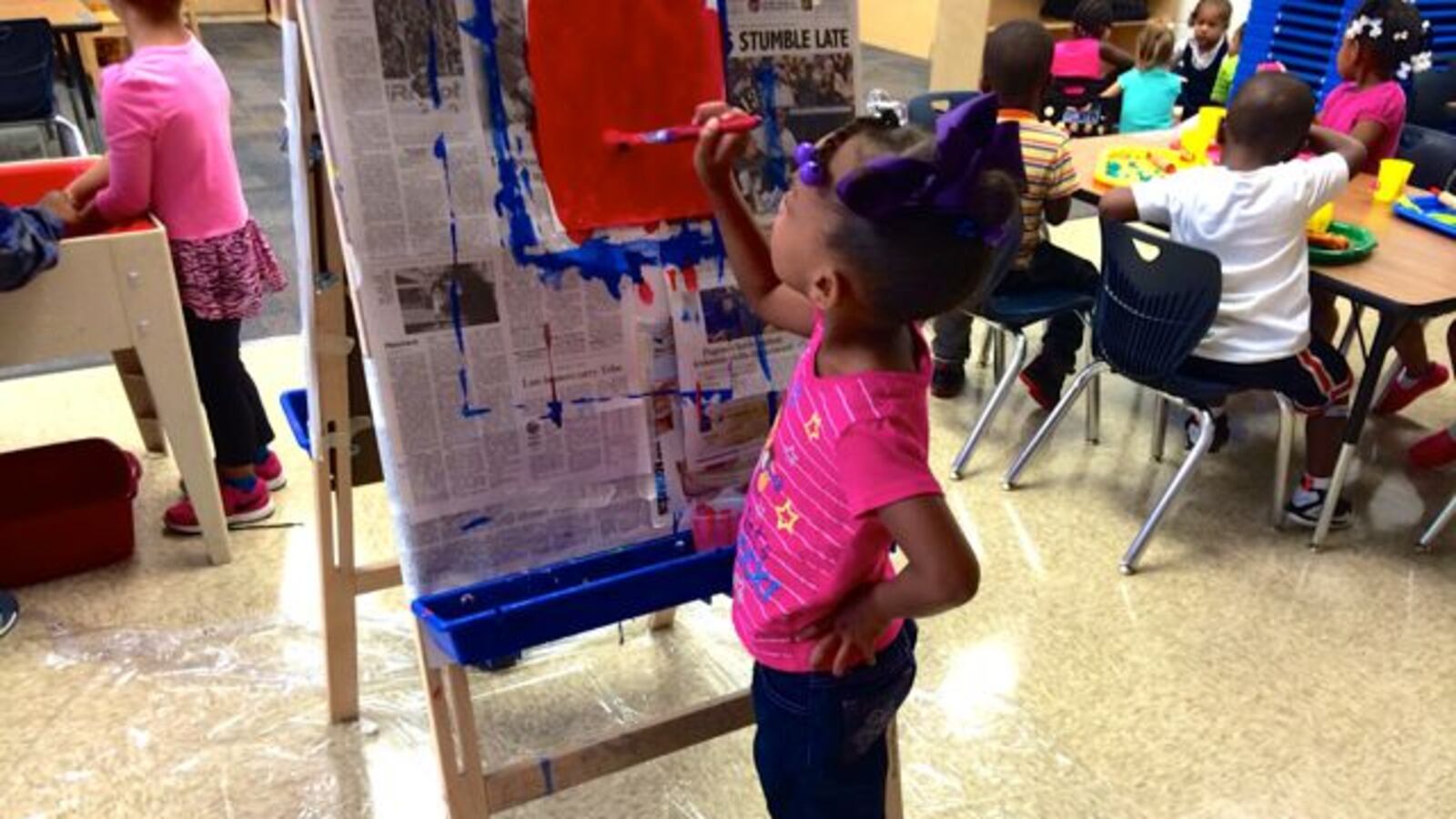While middle- and upper-income parents will see preschool tuition hikes at programs housed in Denver Public Schools next year, they’ll still be paying less on average than other Colorado parents.
Even with the increases approved by the school board Thursday, middle-income families will pay $2,000-$3,700 annually for full-day preschool next year.
“Even with the added cost, it’s pretty reasonable,” said Cheryl Caldwell, the district’s director of early childhood education.
In contrast, the Colorado average for full-day care for four-year-olds is $9,900 a year. That figure earned the state a ranking of seventh for least affordable care in a report released earlier this month by the organization Child Care Aware of America.
While the $9,900 rate is for 12 months of care compared to nine months for the district’s preschool program, DPS is still proportionally cheaper for the vast majority of families. Only the highest-income DPS families as well as out-of-district families will pay similar or higher preschool tuition once the increases take effect.
Caldwell said with districtwide budget cuts anticipated next year, the preschool rate increase will help maintain the program.
Taran Schneider, the director of childcare resource and referral at Qualistar Colorado, said childcare here is often more expensive than public college tuition.
And it’s not just a problem for low-income parents. It can eat up the budget in middle- and upper-income households as well.
“It’s not something that’s easy for anyone,” said Schneider.
While some states and school districts provide universal free preschool, Colorado takes a different approach. The state-funded Colorado Preschool Program provides more than 20,000 free half-day slots for at-risk students, but families on the wait list or those who don’t qualify typically pay for care.
The Child Care Aware report found that care for 4-year-olds in Colorado consumed about 11 percent of the median income for married couples and 35 percent for single parents.
Some private childcare centers cost $1,200 to $1,400 a month—an annual hit of nearly $17,000.
Two voter-approved ballot initiatives have fueled the overall affordability of Denver’s district-based preschool. One is a property tax that lends support to the district’s preschool program and the other is a sales tax that supports preschool subsidies for four-year-olds through the Denver Preschool Program.
“We’re really lucky that Denver voters have supported the Denver Preschool Program and the mill levy to make preschool available for such a large number of students who need services,” said Caldwell.
The district is also unique for its sliding scale tuition schedule. Nearly three-quarters of the district’s 5,900 preschoolers attend for free or a small monthly fee because their families fall into the lowest two of six income brackets. There will be no tuition increase for those two groups next year.
Preschool tuition at schools in nearby districts is fairly comparable to the middle tiers of DPS’ sliding scale. In Jeffco public schools, the monthly rate for full-day preschool is $700-800 depending on the length of the school day.
In Aurora where just there are just 12 tuition-paying students among the district’s 2,200 preschoolers, the rate is $350 a month for a half-day program.
“It’s really been the goal to have our families served with the free programming,” said Suzanne Rougier, the district’s director of early childhood education.


